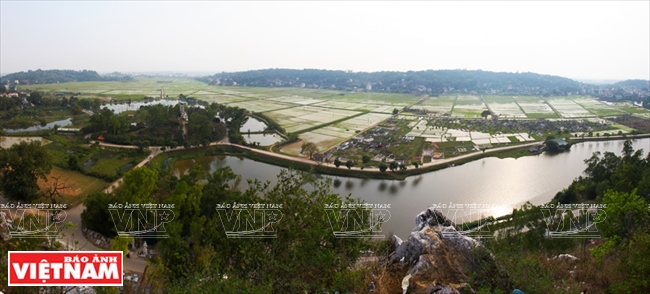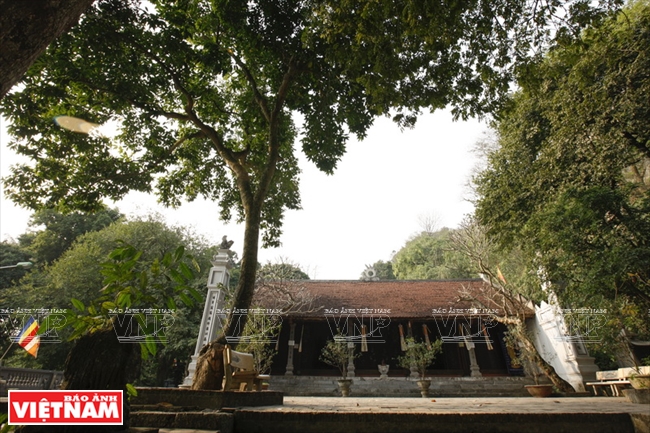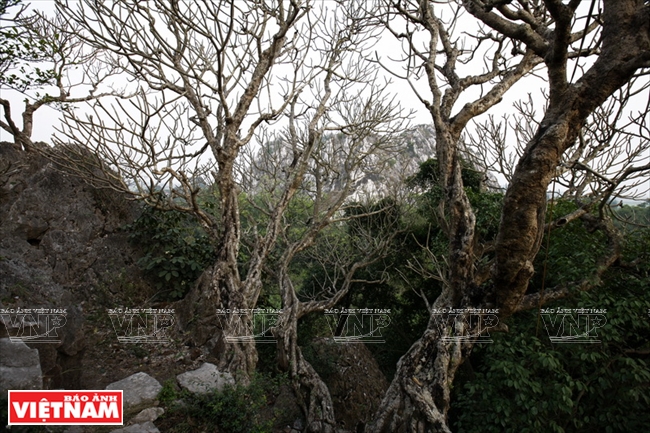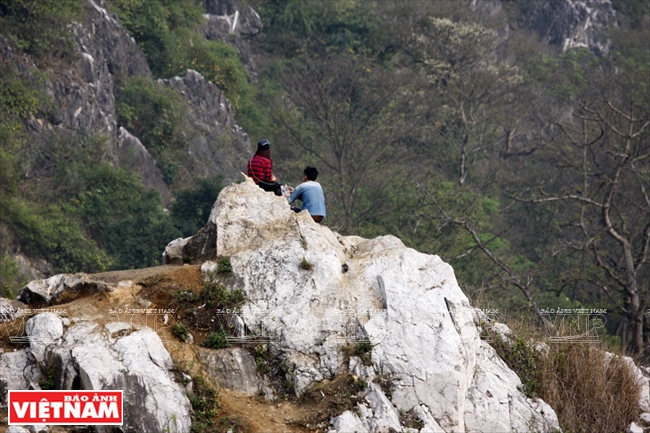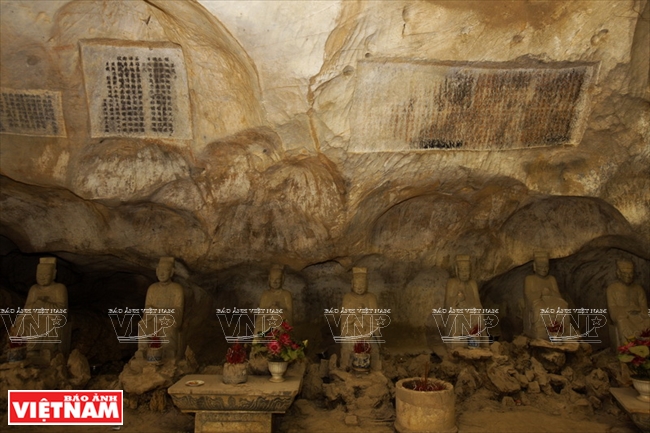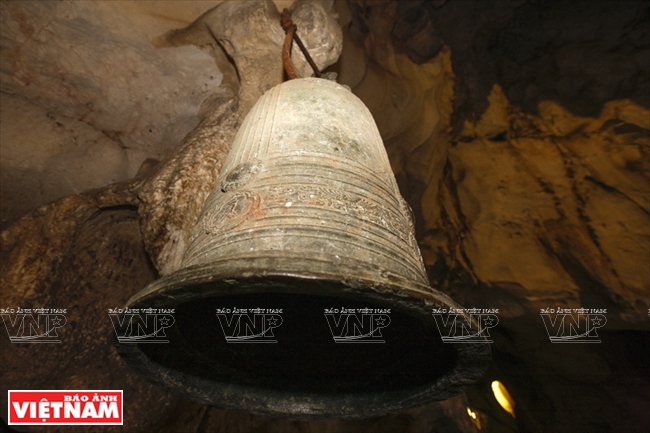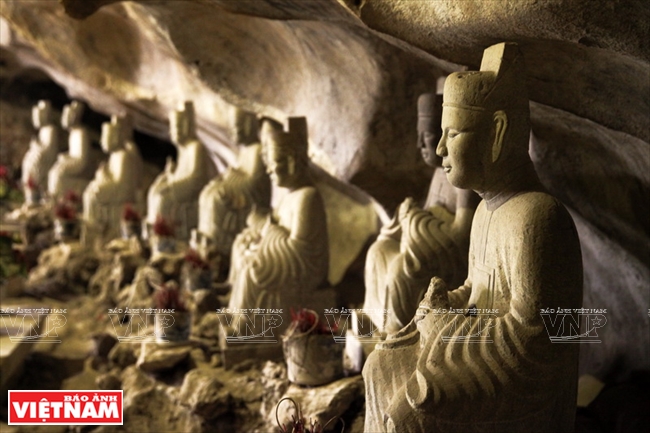Tram Mountain in Phung Chau Commune, Chuong My District, Hanoi, also known as Ngu Nhac Son, has a legend associated with its name. According to the legend, the mountain was once a white pearl from heaven. When the pearl fell to earth near the Day River, it transformed into five phoenixes, which are now the five mountain peaks. The mountains were then named Tu Tram Son.
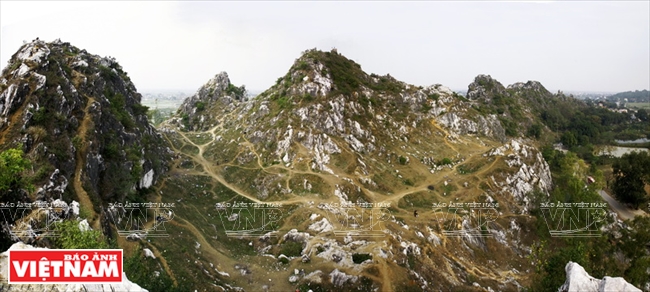 Panoramic view of Tram Mountain with 5 peaks in Phung Chau Commune, Chuong My District, Hanoi. Photo: Viet Cuong/VNP
|
It only takes 10 minutes to reach the halfway point of Tram Mountain, where there is a flat area that offers a panoramic view of the five white peaks. From there, visitors can choose different paths that lead to these peaks.
Tram Mountain is renowned as a spiritual destination with three ancient pagodas: Tram, Hang, and Vo Vi. These pagodas, although small in size, hold significant religious importance. Among them, Vo Vi is the most well-known. It was built in the 16th century and covers a total area of nearly 10m2. Most of the pagoda’s area is dedicated to the worship of Buddha. The pagoda also features a pavilion called Nghenh Phong, where visitors can enjoy the fresh breeze and behold the romantic landscape formed by a river winding peacefully through rice paddies and the rural countryside.
Right at the foot of Tram Mountain stands a 3m high entrance that leads to Hang Pagoda, also known as Cave Pagoda. This pagoda is home to many stone Buddha statues and boasts a variety of stalactites in different shapes and sizes, creating a majestic scenery. Apart from stone drums and statues from the Le Dynasty, the pagoda also preserves 15 valuable ancient poems and literary works on its stone walls.
Last but not least, Tram Pagoda is the main structure within the beautiful complex of spots on Tram Mountain. The pagoda features a large yard adorned with ancient trees and attracts a large number of tourists during the festival season.
With its ancient pagodas and stunning landscape, Tram Mountain is a spiritual destination that appeals to both domestic and international tourists.
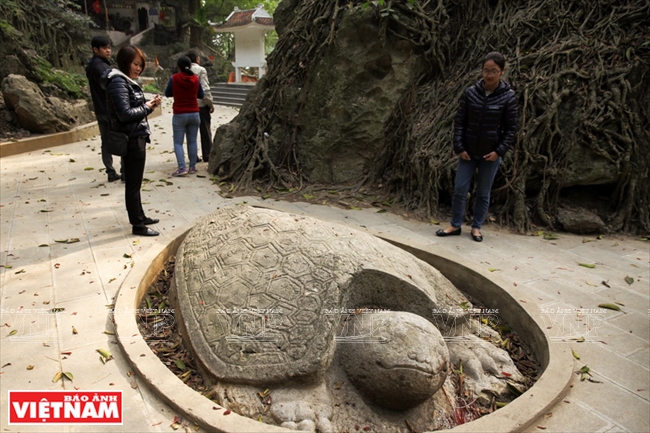 An ancient poem praising the beauty of Tram Mountain is carved on a stone turtle’s shell. Photo: Khanh Long/VNP 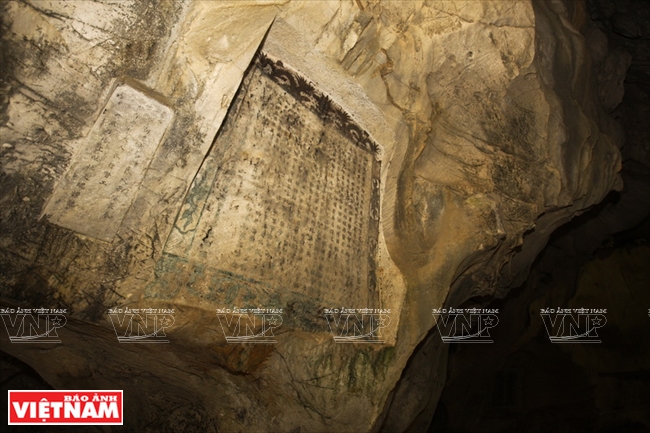 Fifteen valuable ancient poems are delicately carved into the stonewall of Hang Pagoda. (Photo by Viet Cuong/VNP)
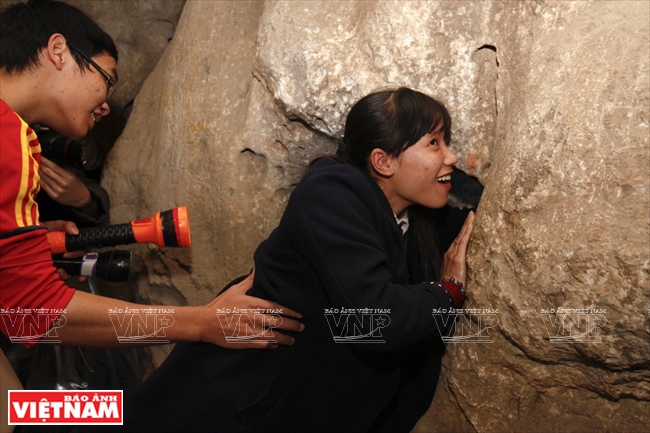
Tourists are captivated by the beauty of “Trong troi” (Sky drum) inside Long Tieng Cave. Photo: Viet Cuong/VNP |
|
President Ho Chi Minh visited Tram Mountain on four occasions. In the early stages of the fight against the French colonialists, he resided and worked there briefly before relocating to Viet Bac. It was during this time that President Ho Chi Minh had the opportunity to read “Calls for National Resistance” and “Letter of Tet Wishes,” which were aired on the Voice of Vietnam in 1947. |
Written by Viet Cuong and Khanh Long

